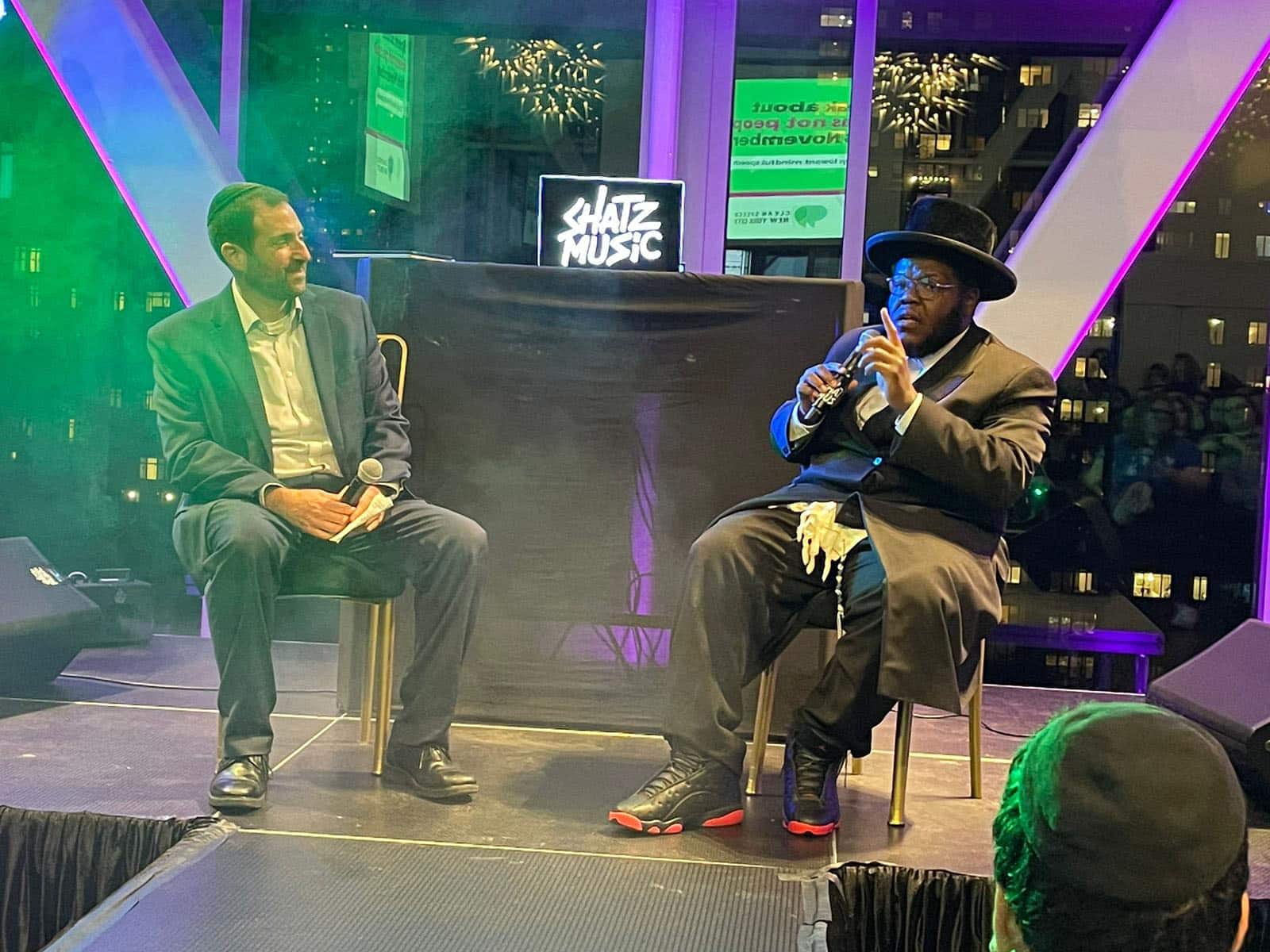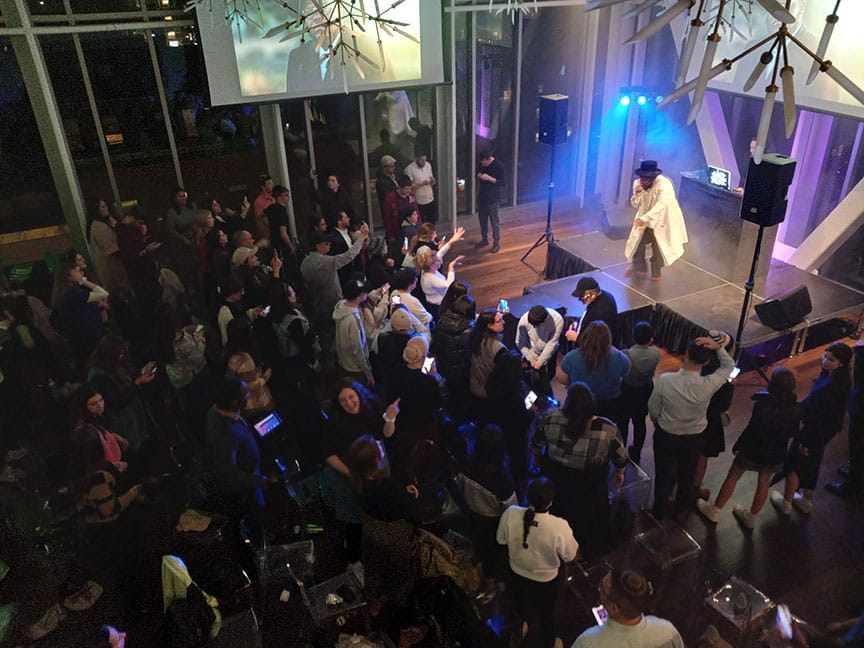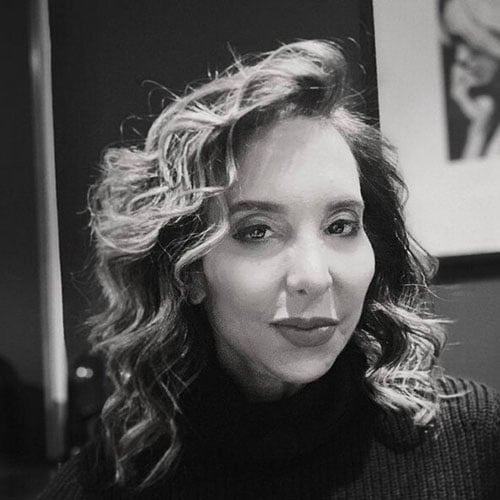
“Life revolves around words,” rap legend Nissim Black said at New York City’s Safra Center on Nov. 8th. “We take for granted how much speech has an effect on a person’s mind, soul, entire being.”
“One unhealthy person says something, and then what started off as words will lead to actions,” said Nissim, in the midst of a tsunami of hate-filled monologues that have already led to hate-filled actions. “It’s not new, but it’s definitely increasing.”
“It’s very important to fight it the way it comes in,” he continued. To take something that’s “debased and turn it around for kedushah (holiness). To use our words to elevate.”
He then proceeded to give a concert — singing favorites like “Higher,” “The Hava Song,” and “HaShem Melech ” — that clearly uplifted the 150 mostly teens in attendance.
The concert was part of the “Clean Speech” campaign in New York City. Led by Aish NY and 20 other organizations, the campaign, launched in 2019 in Denver, is intended to be a “transformational challenge” to learn about and incorporate positive, “mindful” speech (“Think before you speak,” you’re repeatedly advised), based on timeless Jewish wisdom.
“The collective trauma of the pandemic has made people less tolerant and more unkind,” Aish NY explained in an email.. “The way we speak is both the problem and the solution.”
The campaign, which runs through the month of November, includes 30 animated daily videos, offering both lessons and moral dilemmas. Rabbi Elliot Mathias, executive director of Aish NY, began Day 1: “It’s not just about what we say. It’s about who we are. Words more than any other human faculty define us. What we say and how we say it is who we are.”
“Judaism teaches that the words we choose determine how we experience life,” he continued. “By taking hold of our power of speech, we take hold of life itself.”
In some ways, the campaign is geared toward the wrong audience. As even Dave Chappelle would have to admit, Jews don’t exactly dominate the hate speech business. But the campaign is not just about hate speech. It’s also focused on lashon hara — negative speech. Insults, denigration, gossip.
Social media and hyper-partisanship have vastly magnified the problem. In the past, negative thoughts may have stayed in our heads, now they’re blasted 24/7: Digital lashon hara. The level of discourse often feels like we’re all back in kindergarten.
“Bullying has become a major problem in schools and online,” Rabbi Mathias wrote, introducing the program. “Studies have shown that those who are bullied are at increased risk for mental health problems and long-term damage to self-esteem. Children and adolescents who are bullies themselves are at increased risk for drug use, academic problems, and violence to others later in life.
At the same time, “[w]ords of encouragement from a parent, teacher, coach, colleague, or friend can instill confidence that lasts a lifetime. Giving a compliment to a co-worker positively impacts their emotional state that affects their interactions, creating a ripple effect of positivity.”
Words are holy in Judaism. G-d rested on Shabbat; he didn’t speak. Some of the lessons of the daily videos include: Words create reality. Transform our speech, transform our lives. Words can’t be retracted. How to disagree graciously, to be tolerant of differences of opinion.
One of the more poignant videos focused on learning how to process negative thoughts without speaking them. To re-learn how to control our words, we have to re-learn how to control our emotions.
We also need to relearn when to be silent. Nissim talked about negative YouTube comments and how they can impact an artist and his work. I know I speak for many writers when I say: people don’t realize how hurtful their comments can be. Much of my career was pre-Internet. All we had to deal with was the occasional nasty letter to the editor — which would never get published. Now we have to deal with incessant commentary on our pieces.
I found the daily videos both useful and refreshing, but for me, listening to musicians like Nissim can be even more effective. The power of words meets the power of music — it’s truly a spiritual experience. Nissim’s lyrics are life-affirming: G-d is with us, within us. We’re never alone. And if G-d is within us, would He really want us to talk like that?
“Each person is a menorah,” Nissim told the crowd. “Your words can uplift the world.”
Karen Lehrman Bloch is editor in chief of White Rose Magazine.























 More news and opinions than at a Shabbat dinner, right in your inbox.
More news and opinions than at a Shabbat dinner, right in your inbox.